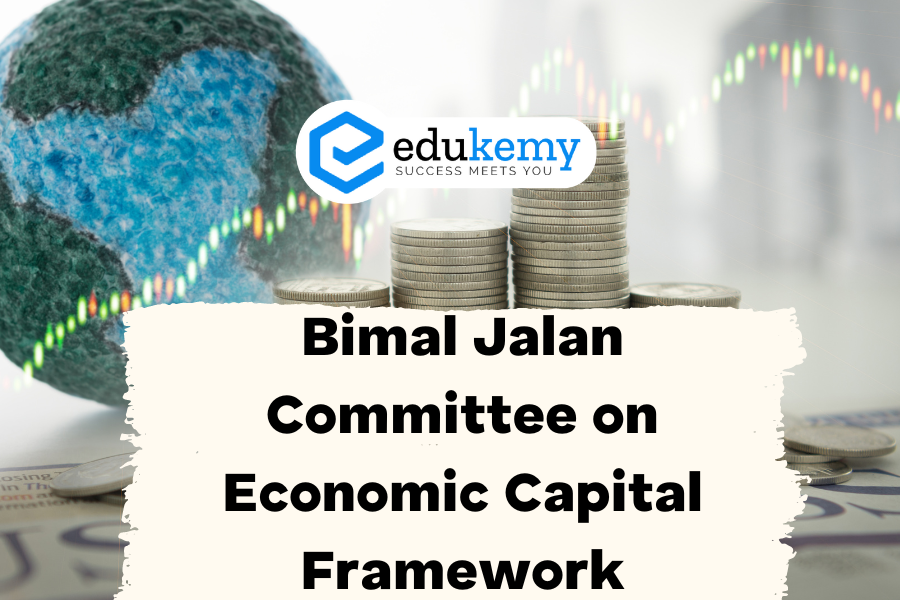
The Bimal Jalan Committee on Economic Capital Framework emerged as a crucial endeavor within India’s financial landscape, tasked with recalibrating the reserves held by the Reserve Bank of India (RBI). Headed by former RBI Governor Dr. Bimal Jalan, the committee was constituted to review the existing framework governing the central bank’s reserves and recommend an appropriate policy for surplus reserves. With its findings anticipated to influence India’s monetary policy and fiscal stability, the committee’s work assumes significance in navigating the complexities of economic management, ensuring resilience in the face of both domestic and global financial challenges. As India continues its journey towards economic growth and stability, the insights provided by the Bimal Jalan Committee are poised to shape the nation’s monetary strategies for the foreseeable future.
In 2018, the Reserve Bank of India (RBI), in collaboration with the Government of India (GOI), established a committee chaired by former RBI Governor Bimal Jalan. The primary objective of this committee was to review the economic capital framework of the RBI that was in place at that time. The Jalan Committee submitted its report to the RBI Governor in 2019.
The Committee’s recommendations were based on several criteria, including:
- Consideration of the role of central banks in maintaining financial resilience.
- Analysis of cross-country practices.
- Evaluation of statutory provisions.
- Assessment of the impact of the RBI’s public policy mandate and operating environment on its balance sheet.
- Examination of the risks involved.
The committee recognized the RBI’s pivotal role in ensuring monetary, financial, and external stability in the country. It emphasized that the RBI’s provisioning for various risks represents the nation’s savings for potential crises and emergencies.
Economic Capital Definition: Economic capital comprises both realized and unrealized reserves. Realized equity is the surplus already earned and available for distribution, while unrealized reserves, or revaluation balances, represent notional gains or losses.
Key Recommendations:
- Financial Year Alignment: Align the financial year of the RBI with the fiscal year of the government for greater cohesiveness in various projections and publications.
- Periodic Review: Conduct a periodic review of the Economic Capital framework every five years.
- Interim Dividend: Allow the RBI to pay interim dividends to the government only under exceptional circumstances. This practice began in the fiscal year 2016-17.
- Contingency Fund Range: Maintain the Contingency Fund (CF) within the range of 6.5% to 5.5% of the economic capital.
Acceptance of Recommendations: The RBI Central Board accepted the recommendations of the Jalan Committee, particularly endorsing the adequacy of a 5.5% Contingency Fund. This decision reflects the importance of maintaining a balance between realized equity, revaluation reserves, and risk provisioning to ensure the RBI’s resilience in the face of potential economic challenges.
FAQs
Q: What is the Bimal Jalan Committee on Economic Capital Framework?
A: The Bimal Jalan Committee on Economic Capital Framework was formed by the Reserve Bank of India (RBI) to review the central bank’s economic capital framework, which determines the amount of reserves the RBI needs to maintain.
Q: Why was the committee formed?
A: The committee was formed to address concerns regarding the appropriate level of reserves held by the RBI. There were debates on whether the RBI was holding excessive reserves or if it needed to maintain higher reserves to deal with financial risks.
Q: What were the key findings of the committee?
A: The committee recommended that the RBI transfer its surplus reserves to the government in a phased manner over several years. It suggested a formula-based approach for determining the appropriate level of reserves, which takes into account various risks and contingencies.
Q: How does the committee’s recommendations impact the RBI and the government?
A: The committee’s recommendations provide clarity on the RBI’s reserve management and can lead to a more transparent and predictable transfer of surplus reserves to the government. This could potentially bolster the government’s finances while ensuring the RBI maintains adequate reserves to address economic contingencies.
Q: What are the implications for the Indian economy?
A: The committee’s recommendations could have significant implications for fiscal management and monetary policy in India. A smoother transfer of surplus reserves to the government could provide fiscal stimulus, while ensuring that the RBI retains sufficient buffers to maintain financial stability and support economic growth in the long term.
In case you still have your doubts, contact us on 9811333901.
For UPSC Prelims Resources, Click here
For Daily Updates and Study Material:
Join our Telegram Channel – Edukemy for IAS
- 1. Learn through Videos – here
- 2. Be Exam Ready by Practicing Daily MCQs – here
- 3. Daily Newsletter – Get all your Current Affairs Covered – here
- 4. Mains Answer Writing Practice – here

